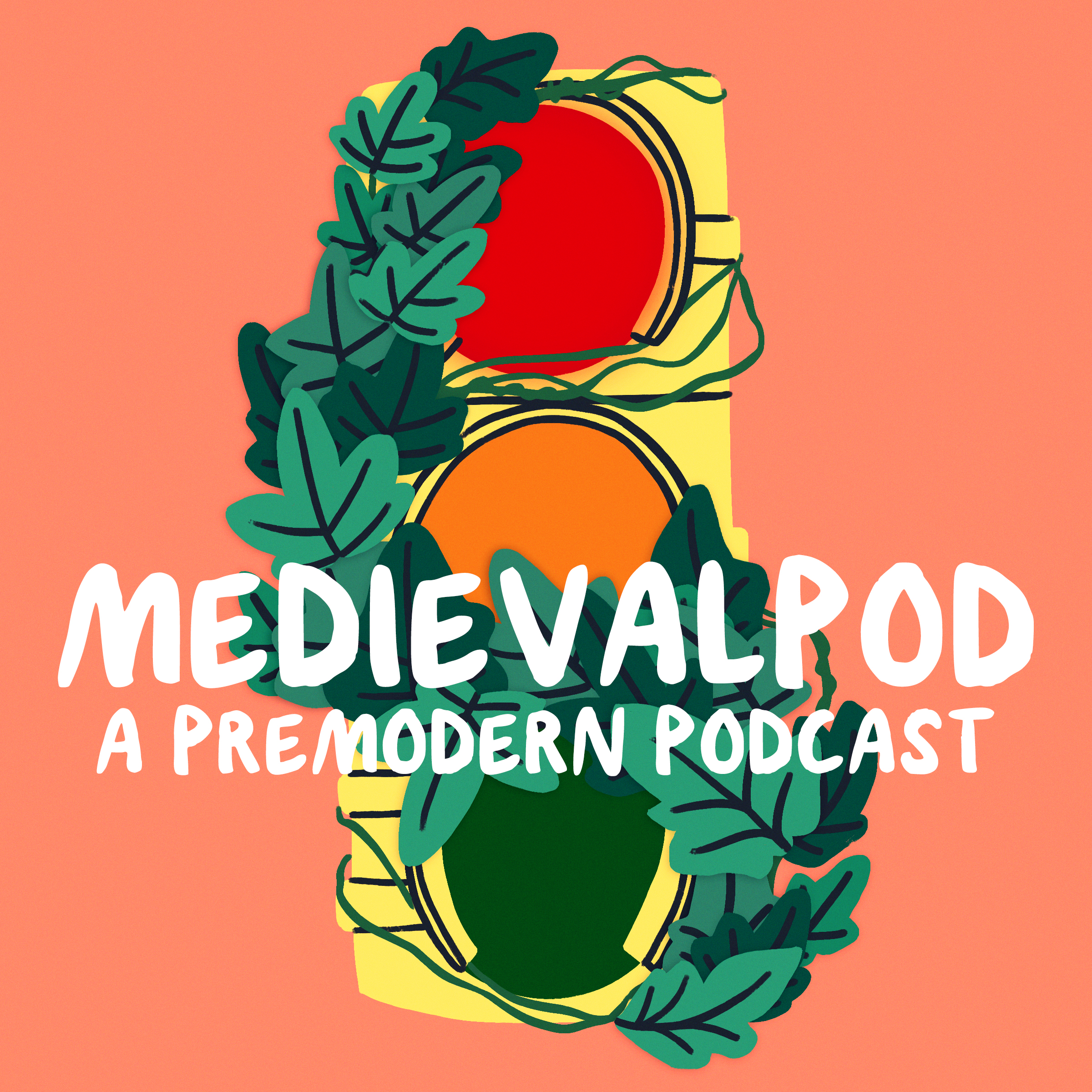This week, I speak with Dr. Jolanta Komornicka, who is an Assistant Professor of Medieval History at St. Jerome’s University. Dr. Komornicka’s work focuses on crime and punishment in medieval France, with an emphasis on the lived experience of people encountering the criminal justice system. In this episode, we talk about the workings of prisons and popular misconceptions about medieval punishment, and discuss how the modern prison abolition movement might be put into productive conversation with medieval ideas about justice and mercy.
This episode contains a content warning for discussions of bodily harm (~minutes 15 to about 18) and mentions of torture and the death penalty (~20 to 25).
Listen here.
Overview
In an American context, prisons are ubiquitous. Calls to abolish them have gained more widespread support recently, spearheaded by activists like Angela Davis and Ruth Wilson Gilmore, who call us to imagine what a world without carceral punishments would look like. While these calls ask us to look forward to goals we are still working toward, what can we gain from looking back?
As we discuss in this episode, medieval crimes were often punished on the basis of community impact. As is true today, crimes often carried particular fines, which would be assessed based on someone’s social and financial status. Rather than being a punishment in and of itself, incarceration was a method of containing someone until they could be tried; this changed in the late medieval and early modern period, when being detained began to function as a deterrent and a punishment.
Medieval punishments from crimes tended to differ from modern ones in several important ways. They were exclusively assessed for violent crimes– public drunkenness, for example, would be dealt with in the community, and would not be punishable in the same way drug possession would be in the modern US. When they included incarceration, it was usually temporary. And as Dr. Komornitskaya points out, many times punishment was less important than mercy.
Recommended Reading
Personal Stories
Hearing about the lives of incarcerated people in any period of history helps us understand the impact of incarceration and the law on individual lives, an element that can be hard to recover in medieval scholarship.

For an intro to medieval stories of crime, be sure to check out Jolanta’s website at The Medieval Notary, where she chronicles medieval peoples’ stories of their interactions with the criminal justice system.
For contemporary stories of incarceration, you can check out the student writing of NYU’s Prison Education Program, or listen to Ear Hustle, a podcast made by incarcerated people in San Quentin State Prison in California.
Prison Abolition
The activist network of prison abolition has been formally active for decades, with antecedents stretching through American history and even further. This article by Kim Kelly in Teen Vogue outlines the history of the movement, including an explanation of the most common arguments against it.
Although there are many places to start learning about prison abolition, one place to start is Angela Davis’s Are Prisons Obsolete?, which lays out the goals of prison abolition and intended practical steps for reducing the prevalence of prisons internationally.
Another resource is the work of Ruth Wilson Gilmore, Professor of geography and Director of the Center for Place, Culture, and Politics at CUNY, and co-founder (with Davis) of the Critical Resistance Project. Her forthcoming book Change Everything: Racial Capitalism and the Case for Abolition will be released in February 2021. Her recent appearances include:
- An interview with her by UCL’s Paul Gilroy about this summer’s protests here
- A recent panel with Haymarket Books about Covid-19 and decarceration, here
- A feature on the Intercept podcast, where she spoke about the history of prisons and their expansion throughout American history
In the related concern of police abolition, Alex Vitale’s The End of Policing is a study of law enforcement and police departments around the world, which questions the organization of policing and punishment that has become commonplace in many contemporary nations.
Everything Else
As mentioned in the episode, the Medieval Murders Map:

If you are interested in learning more about the prison system in the modern United States, check out (In)justice Served, a completely free online course about the prison industrial complex run by Candice Crutchfield, who is a program analyst at the Vera Institute and holds an MA in human rights from Columbia University (@whatcandicedoes on Twitter).
Candice was also featured on episode 1 of “Redesign America with Mustafa Ali-Smith”, where she broke down the basics of the US criminal justice system.
